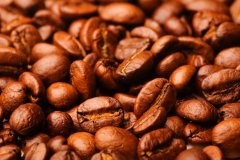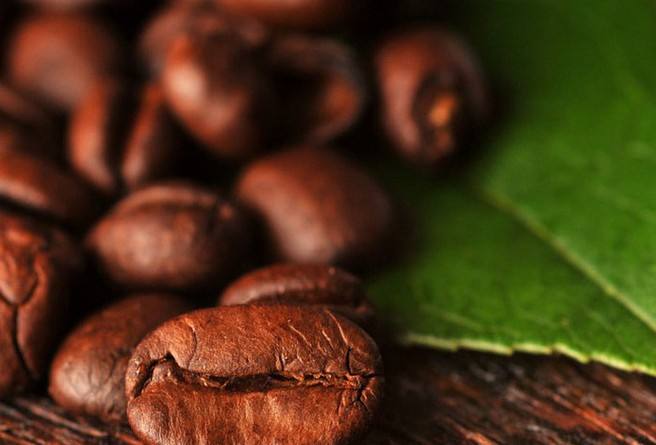Is Brazilian coffee famous? Brazilian coffee beans are introduced.
Follow the caf é (Wechat official account vdailycom) and found that Beautiful Cafe opened a small shop of its own.
Brazilian coffee generally refers to coffee produced in Brazil. There are many kinds of Brazilian coffee, and like other Arabica coffee, Brazilian coffee is called "Brazils" to distinguish it from "Milds" coffee. The vast majority of Brazilian coffee is unwashed and sun-dried and is classified according to the name of the state of origin and port of transport. Brazil has 21 states and 17 states produce coffee, but four of them produce the largest, accounting for 98 per cent of national production: Parana, Sao Paulo, Minas Gerais and Espirito Santo, with the southern state producing the most, accounting for 50 per cent of total production.

In Brazil, the largest producer is Robbins. This kind of coffee is sold in the supermarket. Brazil's Robucht coffee, sold under the name Conillon, accounts for 15 per cent of total production.
Old bourbon coffee is grown on some estates in the Serrado district of Minas Greais state in southeastern Brazil. Old varieties of bourbon coffee grown on these estates, such as Capin Branco and Vista Allegre, are also sold on the market. Although they come from the same area, these coffees have their own characteristics. Capingblanco coffee is smoother than Vesta Allegre coffee, while Vesta Allegre coffee is strong and black, both of which have lower acidity. However, like all Brazilian coffee, they are most suitable for drinking when they are fresh and tender, because the older they are, the more acidic they are. These coffee growers have organized themselves into the Brazilian Special Coffee Association (the Speciality Coffee Association of Brazil).
In terms of natural conditions, Brazil is in the tropics, with a tropical rain forest climate in the north, hot and humid all the year round, suitable for tropical crops, coffee trees are sunny crops, and sufficient sunlight is the condition for their growth. Historically, Brazil has long been a Portuguese colony, in order to meet the needs of Western Europe.
Brazilian coffee has been growing single crops for a long time and developing the tropical plantation economy, so Brazilian coffee has been its pillar industry for a long time. From the market point of view, coffee and its processed products are rich in caffeine, exhilarate and play an important role in the working group dominated by mental workers, so they play a huge role in modern society, so the market is broad. Taken together, Brazil ranks first in coffee production in the world.
Brazilian coffee taste with a low sour taste, with the sweet and bitter taste of coffee, the entrance is very smooth, and with a hint of grass, slightly bitter in the fragrance, smooth and smooth, the aftertaste can make people comfortable and pleasant. There are no outstanding advantages for Brazilian coffee, but there are no obvious defects. The taste is mild and smooth, the acidity is low, the mellow is moderate, and there is a hint of sweetness. All these soft flavors are mixed together. To distinguish them one by one is the best test for the taste buds, which is why many Santos fans love this kind of coffee, just because it is so mild and ordinary. Santos is suitable for ordinary baking, suitable for brewing in the most popular way, and is the best raw material for making Italian espresso and all kinds of fancy coffee.
Important Notice :
前街咖啡 FrontStreet Coffee has moved to new addredd:
FrontStreet Coffee Address: 315,Donghua East Road,GuangZhou
Tel:020 38364473
- Prev

Nicaraguan coffee acreage, name of Nicaraguan coffee farm
Following Cafe (Wechat official account vdailycom) found that the Republic of Nicaragua is a country located in Central America, bordering Honduras to the north, Costa Rica to the south, the Caribbean to the east and the Pacific Ocean to the west. The capital of Nicaragua is Managua, which is one of the main economic centers of Nicaragua and the political and cultural center of the country. Ni
- Next

The source of Brazilian coffee. How does Brazilian coffee taste?
Following Caf é vdailycom (Wechat official account vdailycom) found that Brazil is located in the eastern part of South America and the west coast of the Atlantic Ocean, bordering all countries on the South American continent except Ecuador and Chile; the vast majority of the territory is located between the equator and the Tropic of Cancer, and Brazil is the most tropical country in the world. Environment
Related
- Detailed explanation of Jadeite planting Land in Panamanian Jadeite Manor introduction to the grading system of Jadeite competitive bidding, Red bid, Green bid and Rose Summer
- Story of Coffee planting in Brenka region of Costa Rica Stonehenge Manor anaerobic heavy honey treatment of flavor mouth
- What's on the barrel of Blue Mountain Coffee beans?
- Can American coffee also pull flowers? How to use hot American style to pull out a good-looking pattern?
- Can you make a cold extract with coffee beans? What is the right proportion for cold-extracted coffee formula?
- Indonesian PWN Gold Mandrine Coffee Origin Features Flavor How to Chong? Mandolin coffee is American.
- A brief introduction to the flavor characteristics of Brazilian yellow bourbon coffee beans
- What is the effect of different water quality on the flavor of cold-extracted coffee? What kind of water is best for brewing coffee?
- Why do you think of Rose Summer whenever you mention Panamanian coffee?
- Introduction to the characteristics of authentic blue mountain coffee bean producing areas? What is the CIB Coffee Authority in Jamaica?

